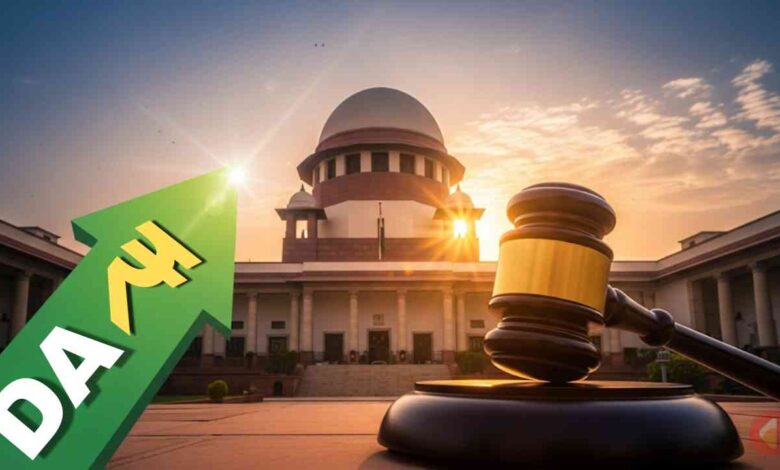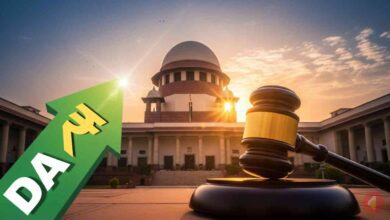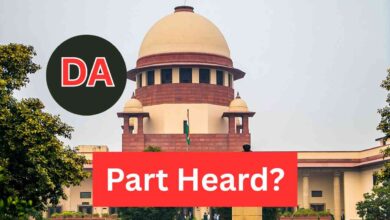DA Case Update: 7 Reasons Why Government Employees Might Win

DA Case Update: The Dearness Allowance (DA) case for West Bengal government employees has taken a new turn. The 7 key arguments presented in court by the Unity Forum’s lawyers suggest that the verdict may lean in their favor. In this report, we will discuss these 7 arguments in detail.
The Core Basis of the DA Case
The DA case is not just a financial battle; it is a fight for the rights of government employees. While central government employees receive DA based on the All India Consumer Price Index (AICPI), West Bengal’s employees do not receive it at the same rate. This has been a long-standing fight against this disparity. Let’s look at the arguments on which the employees are basing their hopes for victory.
1. Supreme Court’s Precedent
According to a ruling by a five-judge bench of the Supreme Court, if the government accepts a Pay Commission’s recommendations, it is bound to implement them for all government employees. This ruling is a major cornerstone of the DA case.
2. Similarity in Central and State Rules
The rules concerning DA for the central and West Bengal governments are nearly identical. Therefore, the demand for DA at the central rate is gaining stronger ground.
3. Lack of Funds is Not an Excuse
The government often cites a lack of funds to avoid paying DA. However, according to a Supreme Court judgment, a shortage of funds cannot be a valid reason for denying DA.
4. The “Sliding Scale” Concept
The “sliding scale” is a crucial concept in DA calculation, which determines the allowance in line with inflation. There are precedents of this concept being applied in the cases of employees from Hindustan Times, Hydro Engineers, and Bengal Chemicals.
5. “Res Judicata”
The state government did not challenge the Calcutta High Court’s previous verdict on the DA case in a higher court. Legally, this brings the principle of “Res Judicata” into effect, which means the matter can be considered as already settled.
6. Kerala’s Example
The video mentioned Kerala’s method of DA determination. Kerala, along with 17 other states, uses its own CPI index, not the AICPI. Additionally, Kerala revises its pay scale every five years, which is different from the central government’s practice.
7. Violation of Fundamental Rights
The non-payment of DA is being viewed as a violation of the employees’ fundamental rights. This argument has also been strongly presented in court.
Future Outlook
Employee organizations are hopeful that the Supreme Court will use its special powers (Article 142) to deliver complete justice in this case. Considering the arguments above, the probability of West Bengal government employees winning the DA case is high. Now, all that remains is to wait for the verdict.





